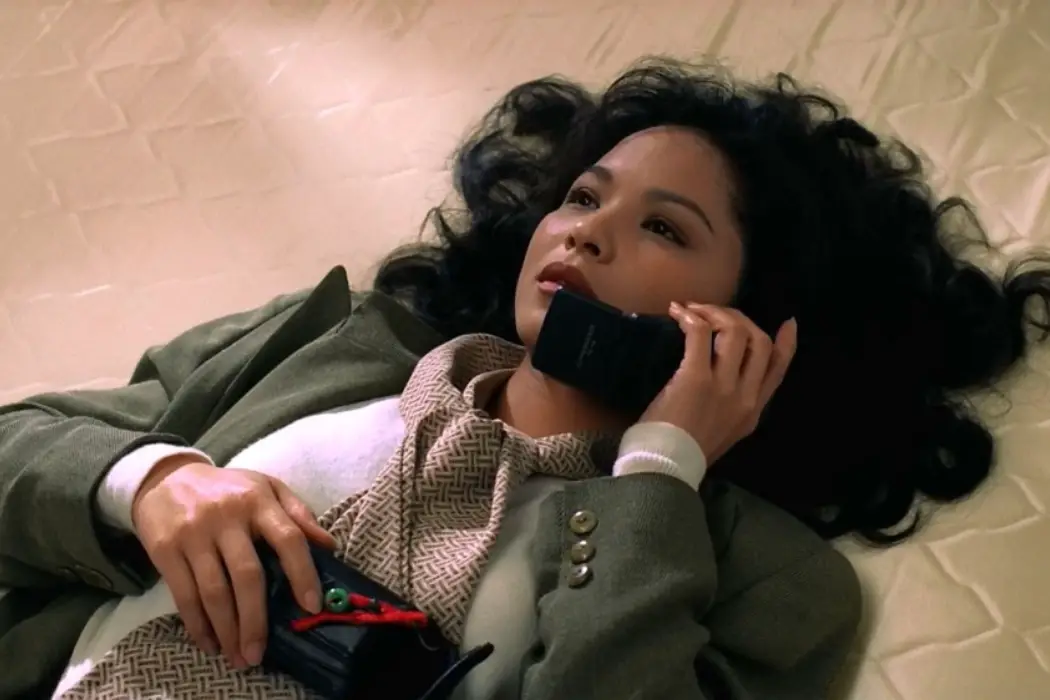VIVE L’AMOUR: Show Me The Meaning Of Being Lonely

Lee Jutton has directed short films starring a killer toaster,…
Very few filmmakers portray the hunger for human connection with as much humor and pathos as Tsai Ming-liang. His characters are often almost unbearably lonely, starved for true intimacy even in the aftermath of sexual encounters. Yet Tsai never allows us to get bogged down in the sadness of these situations, throwing out lifeline after lifeline in flashes of comedy and catharsis. His films leave one with a deep sense of melancholy, but the kind that feels strangely comforting, like the warmth that spreads through one’s face and chest after a good cry has finally subsided.
Perhaps no Tsai film manages this shrewd emotional balancing act better than his sophomore feature, Vive L’Amour. Winner of the Golden Lion at the 1994 Venice Film Festival, the film is a tightly constructed study of how one can feel alienated and alone even in close proximity with others. Now available in a new 2K restoration from Film Movement Classics, Vive L’Amour is a must-see for anyone who has ever felt themselves being swallowed up by the city swirling around them and stretched out a hand for salvation.
The Soft Skin
A beautiful realtor named May (Yang Kuei-mei) shares a glance with street vendor Ah-jung (Chen Chao-jung) in a food court. The two don’t speak, but head to a vacant apartment that May has on the market — seemingly the perfect place for an erotic encounter with a stranger. However, unbeknownst to them, the apartment is not actually empty; a depressive funeral salesman named Hsiao-kang (Tsai’s longtime muse, Lee Kang-sheng) has holed up inside to contemplate suicide.

What follows is one of the most oddball love triangles in recent memory, as the three of them move in and out of the apartment and occasionally encounter each other in the most hilariously awkward of ways. May scales traffic lights and trees to hang signs advertising apartments for sale. Ah-jung flogs his wares in the street. Hsiao-kang sits in cafes with his piles of brochures, detailing the various columbarium arrangements one can purchase in order to be prepared for one’s demise. In the bustling metropolis of Taipei, it almost seems that no one else even knows they’re alive.
The Sound of Silence
As with many of Tsai Ming-liang’s other films, there is not a great deal of dialogue in Vive L’Amour, and most of the words that are spoken are confined to business transactions, such as coffee orders and apartment showings. The most personal of communications are instead conducted by glance and by touch, with emotional tension filling the silence around them near to bursting. No one knows how to articulate their true feelings out loud, resorting to caresses and stolen kisses.
In a film where much of the action is confined to a single space and three characters, the choreography of the actors and camera is of utmost importance. Tsai utilizes many long, static takes, planting his camera in a room or a doorway of the apartment and allowing us to observe the action taking place inside. One is left with an uncomfortable sense of intimacy, verging on voyeurism, that feels strangely fitting as we watch Hsiao-kang linger outside the room where May and Ah-jung are having sex. Observing their encounter is enough to make him staunch the blood dripping from his slashed wrists, but it still doesn’t fill the void left deep inside him; even this almost obscene sense of closeness cannot make him feel less alone. Yet there’s still a streak of dark humor in this scene and so many others throughout Vive L’Amour, as our trio of main characters sneak around each other and seek fulfillment in their lives. It’s not all hopeless, nor should it be.

An untrained actor who was scouted on the street by Tsai and given the starring role in his debut feature, Rebels of the Neon God, Lee Kang-sheng has appeared in all of Tsai’s features since; his name and face—especially his face — are synonymous with Tsai’s films. His naturalistic style of acting and open, honest expressions convey longing unlike no one else and make him the perfect vehicle for the kinds of stories Tsai chooses to tell. Here, he makes Hsiao-kang a figure of strange patheticness — it doesn’t get bleaker than suicidal funeral salesman — for whom one has deep empathy. Tsai has said he cannot imagine making films without Lee; I cannot imagine it either.
As is to be expected, the other members of the trio at the center of Vive L’Amour are also regular Tsai collaborators. As May, Yang Kuei-mei is heartbreakingly good. While her exceptional beauty at first masks her own inner turmoil, that perfectly put-together facade gradually crumbles into dust. Yang is given the privilege of the film’s final scene, and allowed to spill forth the pain that she’s kept inside over the course of the film; the result is one of the most powerful finales in the movies. And while Chen Chao-jung has the less emotionally taxing role of the three, his Ah-jung is no less intriguing—a confident young man who asks few questions and expects even fewer answers. His scenes with Lee are a delight.
Vive L’Amour has earned many (deserved) comparisons to Michelangelo Antonioni’s odes to urban ennui L’Avventura and L’Eclisse, and it’s easy to see why; those films are also masterfully constructed, beautifully photographed studies of characters who cannot even manage to light the fire of life within themselves via sex, thus leaving them cold and alone. One also sees such characters populating Ryusuke Hamaguchi’s World of Fortune and Fantasy, though they are far more verbose, choosing to give voice to their self-doubt and self-loathing rather than wallowing in silent agony. Yet amidst this glorious company, there’s still something about Tsai’s storytelling that remains entirely his own, a sense of heart—albeit a bruised and battered one—that continues beating and reminds us that ours should too.
Conclusion
Even when they are placed in the most absurd situations, Tsai Ming-liang’s characters convey feelings so incredibly universal that it’s impossible to not relate to them. Vive L’Amour is one of the best and brightest examples of this; it’s never looked better to feel so alone.
What do you think? What’s your favorite Tsai Ming-liang film? Share your thoughts in the comments below.
The new 2K restoration of Vive L’Amour opens at Metrograph in New York on March 18, 2022
Watch Vive L’Amour
Does content like this matter to you?
Become a Member and support film journalism. Unlock access to all of Film Inquiry`s great articles. Join a community of like-minded readers who are passionate about cinema - get access to our private members Network, give back to independent filmmakers, and more.
Lee Jutton has directed short films starring a killer toaster, a killer Christmas tree, and a not-killer leopard. Her writing has appeared in publications such as Film School Rejects, Bitch: A Feminist Response to Pop Culture, Bitch Flicks, TV Fanatic, and Just Press Play. When not watching, making, or writing about films, she can usually be found on Twitter obsessing over soccer, BTS, and her cat.












